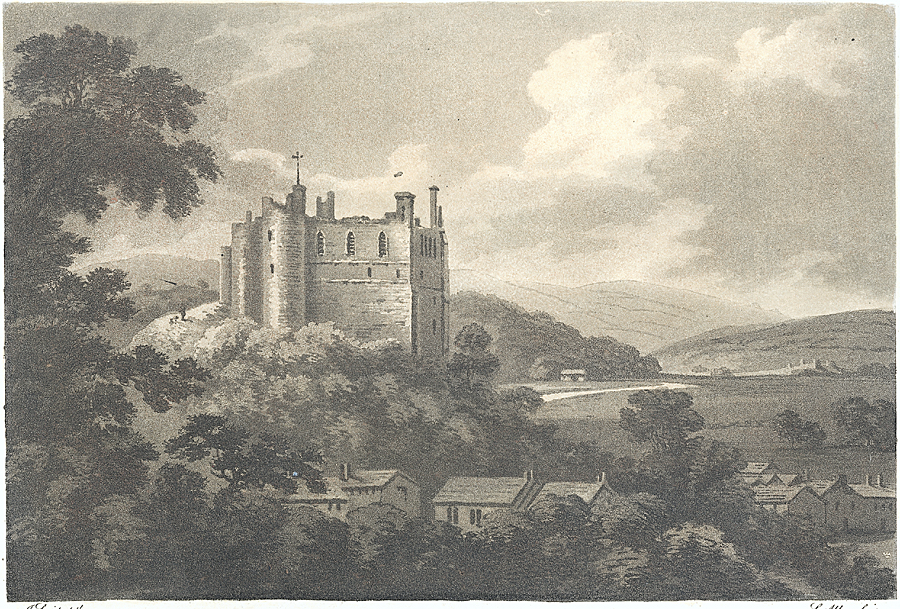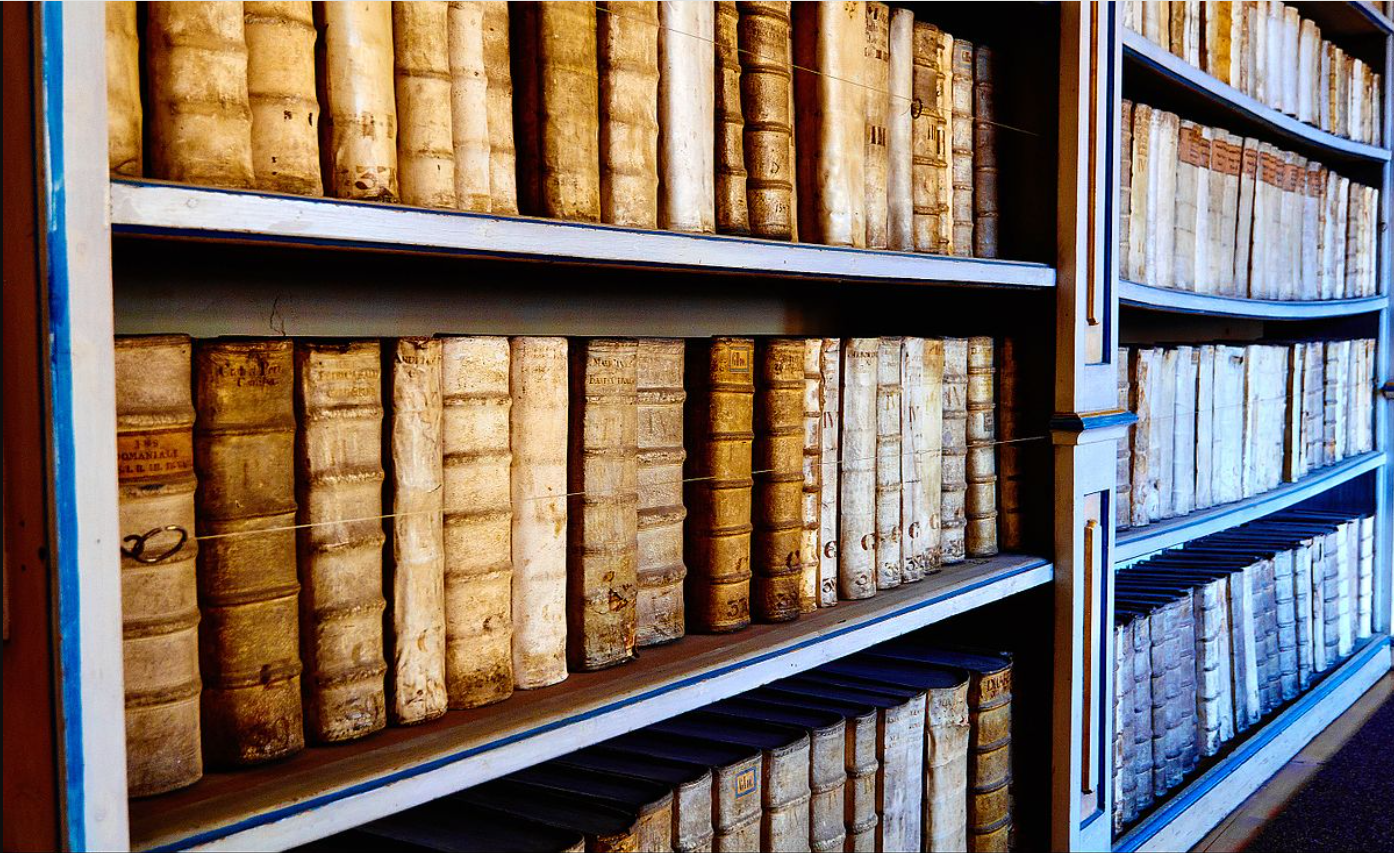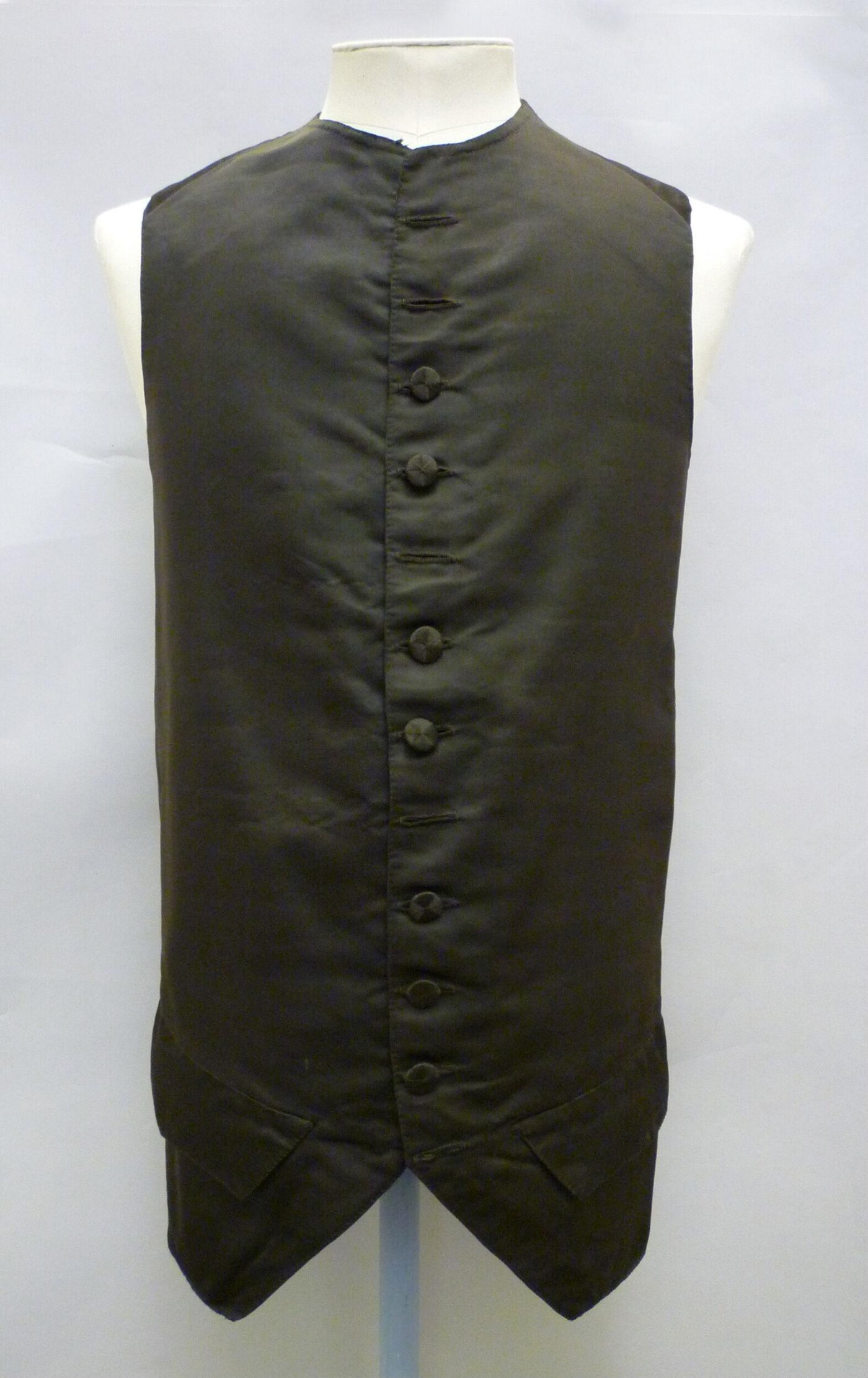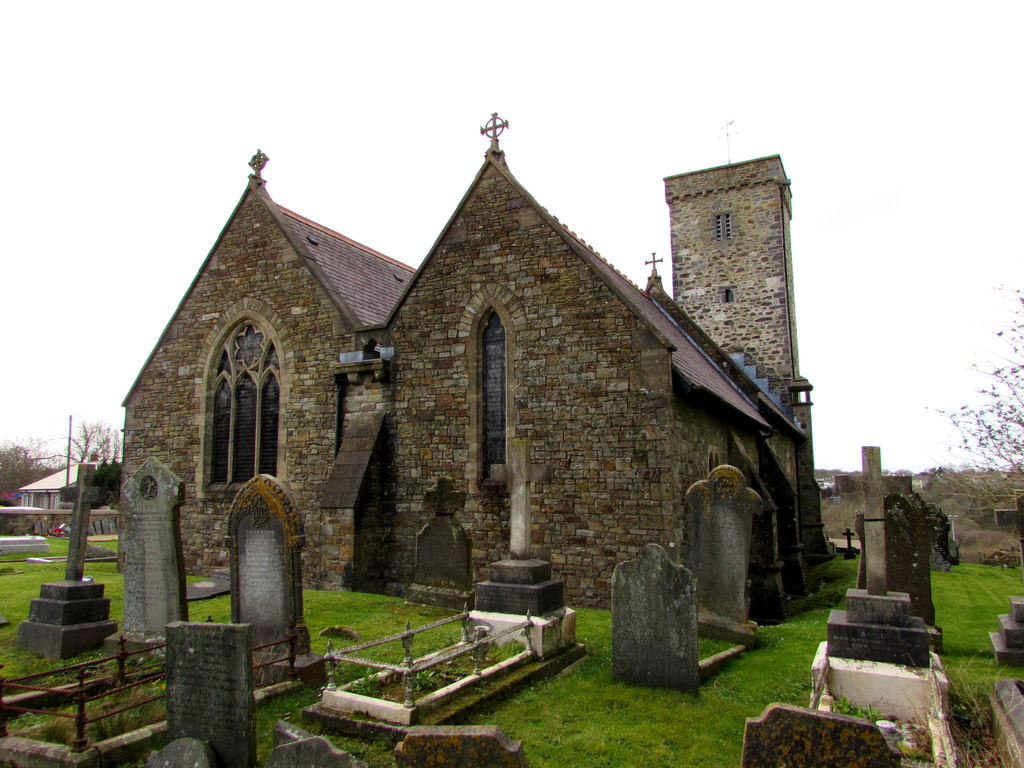Posted by e.m.vine@exeter.ac.uk
18 November 2025On paper, this month’s featured testator lived a very different life to the subject of last month’s blog post. Our last post took us to Tudor London, and explored the deathbed will of Margery Gadyng, a young married woman who died suddenly and left behind several children. In this post we travel to late eighteenth-century Haverfordwest, county town of Pembrokeshire, and explore a will made by an older widowed clergyman several months before he died, leaving no close relatives. In one sense, these two disparate lives capture the range of testators who feature in our sample of 25,000 wills made between 1540 and 1790. Yet in practice, both testators’ acknowledgments of friendship, and their desire to recompense the kindness shown towards them in life, reveal some similarities in values and wishes expressed.

A ‘Clerk’ and schoolmaster of Haverfordwest
Reverend William Thomas, ‘Clerk’, had been a schoolmaster of the Haverfordwest Free Grammar School, but did not appear to be attached to a particular church.[1] He was a resident of the parish of Saint Martin Haverfordwest, but asked to be buried in the churchyard of nearby St David Prendergast. Another bequest suggests that he had once served the church of Wiston, a village some six miles outside of the town. He left money to the poor of both Saint Thomas Haverfordwest and Wiston.
Thomas appeared to have few surviving relatives. No wife or widow was mentioned, only a few kinsmen and women, and ‘my late Son George Saintlo Thomas’, who had reached adulthood before predeceasing his father. In the absence of surviving children, the majority of Thomas’s bequests were made to friends, many of whom were also clergy.

To Thomas Ayleway he left several books befitting a man of learning, including: ‘ffothergills Sermons, Bishop of Oxfords Sermons, the ffirst and Third Volumes of Scot’s Christian life and Ruddiman’s latin Grammer’. Testators didn’t always include the titles of books bequeathed, but such details are always insightful, in this case showing Thomas’s interest in works by defenders of Anglican orthodoxy. Ayleway also received several items related to horse-riding, including ‘my Horse Bridle Saddle my second best Suit of Cloaths, Horsemans Coat and Boots’. These bequests are indicative of the masculine pursuits shared by these two men who occupied the professional classes.[2]
‘The Breeches I wear every day’
Several of Thomas’s friends received bequests of clothing. He left to ‘my ffriend Peter Roch Clerk my Gown and Cassock’, ostensibly worn frequently as part of his professional duties. Another friend, ‘William Tasker Clerk’, curate of Saint Martin Haverfordwest, received ‘my best hat if he please to accept of it’ while Billy Rees was given ‘the Coat Waistcoat and Breeches I wear every day’.[3] A testator’s best or everyday clothing may have been useful and readily reusable, but such bequests also suggest a close degree of familiarity with the beneficiary. Thomas also left significant gifts to his friends’ children. He gave feather beds to the two daughters of James Winter, while one Jane Phillips, daughter of ‘my ffriend George Philipps’ received ‘my Six Silver Tea Spoons and Tongs and my three Silver Table Spoons’.

‘the Great Kindness shewn me’
The personal possessions and household objects mentioned in Thomas’s will hint at various aspects of his professional life and leisure: his horse-riding, sermon-reading, and tea-drinking. But many of Thomas’s larger bequests are revealing of other aspects of his story: recognising ‘kindnesses’ shown to him during his life and career, or acknowledging the work of those who had served or helped him in some way. He divided up the rest of his ‘Household ffurniture herein not before disposed’ between his former servant Sarah Rees, and his current servant Martha Evans. Three Guineas were left to the widow of the man who served Wiston church ‘for three Months at a time where I was unable to serve it’. Turning to his funeral, he requested his ‘Body to be carried to the Grave by Eight Poor Men’ and named each of them. As with his recognition of assistance given in life, each of these eight men would receive five shillings for this task.
The largest bequest, ‘the rest residue and Remainder of my Personal Estate’ was left to his friend and executor Dr George Philipps, ‘in acknowledgment of the Great Kindness shewn me’ by his father and uncle, who were ‘Chiefly Instrumental in Procuring for me the Mastership of the ffree School of the said Town and County much to the benefit of me and my ffamily’. Thomas acknowledged that the influence of these contacts had seen him appointed to a stable position as a schoolmaster, and that the attendant good living advanced the fortunes of his family. Yet, at the time of his death, it appears that Thomas had no surviving close family to pass this accumulated estate onto.
‘as remote from every other grave as conveniently may be’
For a man who had appeared so embedded in the community of Haverfordwest, who named many local friends, and who had made multiple charitable bequests to the parish poor, Thomas’s final burial wishes are somewhat jarring. Thomas asked to be ‘privately buried at eight o Clock in the Morning in the Church yard of Prendergast as remote from every other grave as conveniently may be’.[4] We can only speculate as to the reasons for Thomas’s marked desire to have such a private burial, bereft of mourners, and to be set apart from the rest of the churchyard and the rest of the community.

The east side and churchyard of St David’s Prendergast, Haverfordwest. Thomas asked to be buried here. https://commons.wikimedia.org/wiki/File:East_side_of_St_David%27s_Church,_Prendergast,_Haverfordwest_-_geograph.org.uk_-_6086814.jpg
Higher status testators sometimes expressed their wish to be buried in a coveted location: before the altar, or adjacent to their usual pew, and many other expressed a wish to be buried near relatives.[5] Thomas’s will implied that at least one son had pre-deceased him, presumably his wife had too, but we have no further information about their lives, or where they were laid to rest. In this final statement of wishes, Thomas had ostensibly set his mind to purely practical decisions, and perhaps the bereavements hinted at in the document had occurred a considerable time ago.
It can be tempting to read wills as though they were autobiographies: Margery Gadyng’s will, discussed at the beginning of this post and in further detail last month, is certainly one example that provides a vivid image of a life. But wills can only ever act as a snapshot of a person’s wishes and relationships at one particular moment, and can only ever provide a glimpse of the decades that had elapsed before. It appears that Reverend Thomas the clerk, the schoolmaster, the friend, the colleague, the father, and the husband (?) had to be accessible to others in many ways throughout his life. As twenty-first century readers, we are forced, to a certain extent, to respect his wishes for privacy and inaccessibility in death.
Full transcription of the will of Reverend William Thomas, Clerk of Saint Martin Haverfordwest , Pembrokeshire, 04 August 1786, PROB 11/1145/37
The Revd
William Thomas
In the Name of God Amen
I William Thomas of the Parish of Saint Martin in the
Town and County of Haverford West Clerk being weak of
Body but of sound mind and memory Do make and ordain
this my last Will and Testament in manner and form following
ffirst I desire to be buried decently and privately buried at eight
O Clock in the Morning in the Church yard of Prendergast
as remote from every other grave as conveniently may be and
my Body to be carried to the Grave by Eight Poor Men Vizt
John Davies Shoemaker Patrick John Shoomaker David Rees
Mason Michael Davies Labourer Lavis Williams Millwright
francis owen Gardiner Richard Jones Shoemaker Henry Evans
Labourer to whom I desire my Executor herein after to be named
to give the sum of five shillings each also I give and bequeath
to Damaris the Widow of the late Lieutenant ^ Mathias Knowles the
Sum of ffifty Guineas to be paid her within three Months next
after the decease of the Right Honorable Lord Kensington in
case she shall happen to survive him also I give and bequeath
to my Kinswoman Margaret the wife of Richard Leonard of
the North Hamlets situate in that part of the said Parish of
Saint Martin that extends into the County of Pembroke ffarmer
Ten pounds also I give and bequeath to my Kinswoman Mary
Jenkins of the Parish of Spitall in the said County Widow Ten
pounds Also I give unto my Kinswoman Anne Jenkins of the
Parish of Lysyrrane in the said County Widow ten pounds
Also I give to my Kinswoman Elizabeth Evan of the said Parish
of Lysyrrane ten pounds also to Anne the wife of James
Winter of the Parish of Wiston in the said County Ten pounds
and a ffeatherbed also to Martha John Daughter of the said
James Winter Ten Pounds and a ffeather Bed Also to
Roberts another Daughter of the said James Winter seven
pounds Also to Martha the Wife of Edmund Waller Esquire of
Beaconsfield in the County of Buckingham ten pounds in
discharge of the Sum of ten pounds advanced by her to her
Husband to my late Son George Saintlo Thomas Also I give
to Mrs Ann Edwardes Widow of the late Rowland Edwardes
Esquire ten pounds I give and bequeath unto Mrs Harries
of Briculeyveridd the Sum of three Guineas as an acknowledgment
ffor the late Mr Harries’s Assistance in getting Wiston Church
served for three Months at a time where I was unable to
serve it also to James Davies of Norton in the Parish of
Wiston in the said County of Pembroke one Guinea and my
Best suit of Cloaths and Best Surtout Coat Also to my Kinsman
Charles Griffith one Guinea also to Thomas Griffith of Cranmin
another Relation one Guinea Also to my ffriend Mr Thomas
Ayleway of the Parish of Saint Mary in the said Town and County
I give my Horse Bridle Saddle my second best Suit of Cloaths,
Horsemans Coat and Boots, ffothergills Sermons, Bishop of Oxfords
Sermons, the ffirst and Third Volumes of Scot’s Christian life and
Ruddiman’s latin Grammer also I give to my ffriend Peter Roch
Clerk my Gown and Cassock Also to my ffriend William Tasker
Clerk my best hat if he please to accept of it Also to Mr Davies
Nephew of the late Mr David Meredith my Camden’s Britannia
and the Delphick Oracle Also to Miss Jane Philipps Daughter of
Doctor George Philipps my Six Silver Tea Spoons and Tongs
and my three Silver Table Spoons Also to my sometime Servant
Sarah Rees of the said Town and County Widow five pounds
Also to my present Servant Martha Evans five pounds Also I give
all my Household ffurniture herein not before disposed of to the said
Sarah Rees and Martha Evans to be equally divided between
them also I give to the Poor of the Parish of Saint Thomas in
the said Town and County fforty shillings also to the poor of the Parish
of Wiston in the said County of Pembroke forty shillings to be
distributed according to the Discretion of my Executor and it is my
Will that all the fforegoing Legacies shall be paid within three
Months after my decease Also I give and bequeath to Billy Rees
the Coat Waistcoat and Breeches I wear every day all the rest
residue and Remainder of my Personal Estate whatsoever and
wheresoever after payment of my just debts I give and bequeath to
my ffriend George Philipps of the said Town and County Doctor
in Physick in acknowledgment of the Great Kindness shewn me
by his ffather the late Reverend George Philipps and of the kindness
shown me by his uncle the late Mr Richard Philipps who was
Chiefly Instrumental in Procuring for me the Mastership of the
ffree School of the said Town and County much to the benefit of me
and my ffamily and I do hereby Constitute and appoint the said
Doctor George Philipps Sole Executor of this my last Will and
Testament In Witness whereof I have hereunto set my hand and
Seal this twenty second day of April in the year of our Lord one
thousand seven hundred and eighty six William Thomas Signed
Sealed Published and declared by the herein before mentioned Testator
William Thomas as and for his last Will and Testament in the
presence of us who at his desire attest the same in the presence
of him and each other John Bateman, Hugh Robins
This Will was proved at London the fourth
day of August in the year of our Lord one thousand sevenundred
and eighty six before the Right Worshipful Peter Calvert Doctor
of Laws Master Keeper or Commissary of the Prerogative Court
of Canterbury lawfully constituted by the oath of George Philips Philips
Esquire the Sole Executor named in the said Will to whom admin
was granted of all and singular the Goods Chattels and Credits of
the deceased having been first sworn by Commission duly to administer.
[1] https://blog.theclergydatabase.org.uk/jsp/persons/CreatePersonFrames.jsp?PersonID=133140
[2] Ben Jackson, Material masculinities: Men and goods in eighteenth-century England (Manchester University Press, 2025).
[3] https://blog.theclergydatabase.org.uk/jsp/locations/DisplayLocation.jsp?locKey=234758
[4] PROB 11/1145/37, Will of Reverend William Thomas, Clerk of Saint Martin Haverfordwest , Pembrokeshire, 04 August 1786.
[5] Ralph Houlbrooke, Death, Religion and the Family in England, 1480-1750 (Oxford University Press, 2000) p.365.